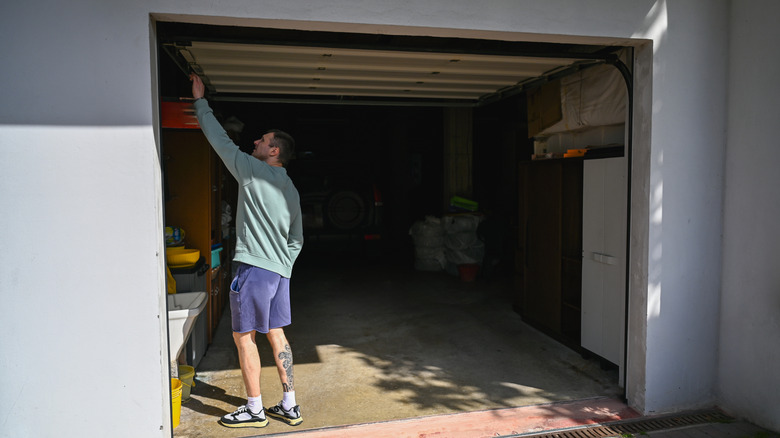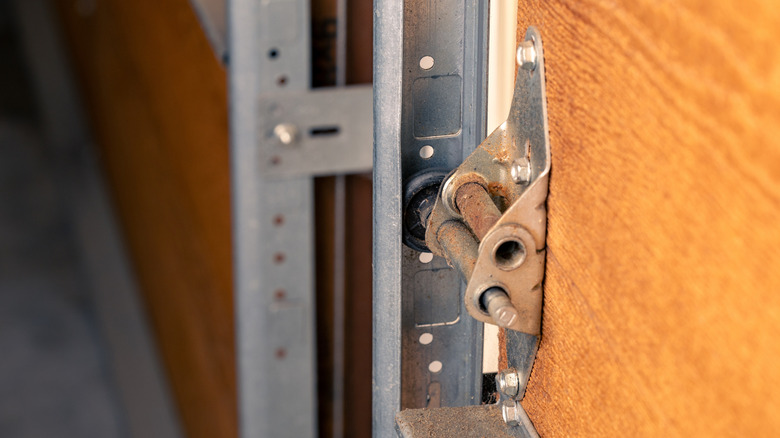The Clear Signs That Your Garage Door Rollers Need To Be Replaced
Your garage door relies on a surprisingly simple, yet vitally important, component for smooth operation: the rollers. These small wheel-like elements are fitted into tracks on either side of your garage door. They contain bearings that allow them to spin freely, thus minimizing friction and wear on the tracks as they open and close. Rollers also play a huge part in keeping your garage door system healthy (in addition to these important garage door maintenance steps) as they prevent strain on the motor and other parts when they work correctly. If your rollers are damaged, however, they cannot do their job and probably need to be replaced.
Regular maintenance and an understanding of their role are vital to keeping your garage door working smoothly. Without properly functioning rollers, your garage door's performance can quickly degrade, leading to a host of problems from minor annoyances to larger safety hazards. Worn-out rollers can cause a garage door to stick, shudder, not shut all the way, or even come off the tracks entirely, posing risks to both property and people.
Well-functioning rollers are essential not only to keep the door working properly but for maintaining the security and even the insulation of your garage (especially if you are using a garage door insulation kit). Recognizing the importance of these often-overlooked components is the first step in proactively maintaining your home. By paying attention to their condition, you are likely to prevent more extensive and costly repairs down the line, ensuring your garage door stays in good condition.
Spotting the red flags: When to replace your rollers
Recognizing the signs of failing rollers is critical, so you can keep your garage door system safe and working efficiently. One of the most obvious signs is excessive noise. Healthy garage doors open fairly quietly, so if you are hearing grinding, squealing, popping, or scraping sounds when your door moves, those rollers are likely struggling. These noises typically indicate issues like worn-out bearings, flat spots on the roller wheels, or even debris caught within the roller mechanism. If lubricating the rollers doesn't make your garage door quieter, they likely need replacing.
Another sign is visible damage to the rollers. Examine the wheels: are they cracked, flattened, or chipped? Are any missing? Rust is another major culprit, causing friction on rollers, stopping them from moving smoothly, and possibly even damaging the tracks. Beyond checking for noise and visible damage, pay close attention to the smoothness of your garage door's movement. If it seems to be struggling in any way, that's a decent indicator that your rollers are no longer gliding properly within the tracks. You may also notice that the door is unevenly balanced, rising higher on one side, which puts immense stress on the panels and opener.
Finally, if you see any shaking or wobbling while the door opens or closes, this is a good indicator that some (or all) of the rollers are not keeping the consistent contact with the tracks they need to have. This suggests myriad issues, like loose fittings and worn-down components, for example. Addressing any of these clear signs promptly will prevent further damage to your garage door system and ensure that it keeps working safely and efficiently for years.

